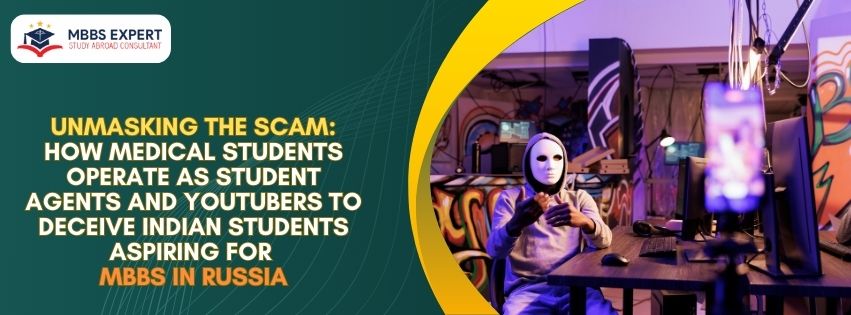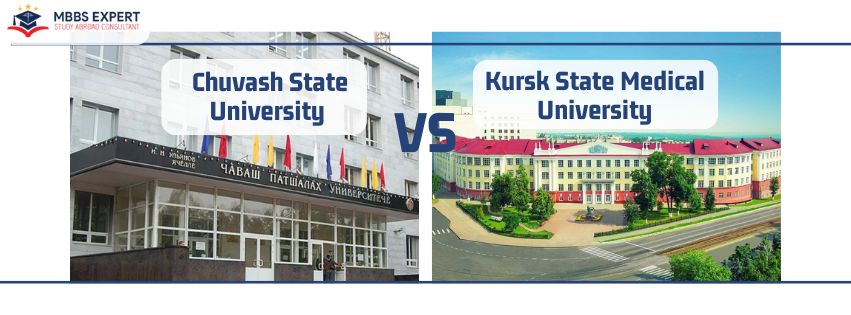Study MBBS at Ingush State University, Russia – Your Gateway to an Affordable Medical Education…

Unmasking the Scam: How Medical Students Operate as Student Agents and YouTubers to Deceive Indian Students in Russia
![]()
Unmasking the Scam: How Medical Students Operate as Student Agents and YouTubers to Deceive Indian Students in Russia

In recent years, the allure of studying MBBS in Russia has captivated many Indian students. However, this dream is increasingly threatened by unscrupulous individuals who exploit their aspirations. Medical students, acting as student agents and YouTubers, have devised intricate schemes to scam Indian students. This blog unravels their tactics and offers insights on how to avoid falling prey to these deceitful practices.
Step 1: Establishing a Digital Presence
The journey begins with the creation of a YouTube vlogging channel and an Instagram handle. These platforms serve as the primary tools for reaching a wide audience. The content usually highlights the beauty of Russian cities, featuring students in picturesque settings and glamorous lifestyles. This portrayal creates an enticing image of life as an international student, designed to attract prospective students.
Table 1: Key Features of Digital Presence
| Platform | Content Style | Objective |
| YouTube | Vlogs showcasing cityscapes and lifestyle | Attract and engage potential students |
| Posts and stories with high visual appeal | Build a following and create a sense of authenticity |
Step 2: The Attraction Strategy
Once the digital presence is established, the next step is to lure students in. The videos and posts often emphasize the advantages of studying in Russia, including modern infrastructure, high-quality education, and a vibrant student life. The individuals behind these channels use persuasive language and present themselves as relatable figures who have successfully navigated the journey, thus convincing viewers of their credibility.
Step 3: The Silent Syndicate
Behind the scenes, a silent syndicate operates. This group is not immediately visible but plays a crucial role in the scam. They support the front-facing agents by providing information, coordinating activities, and maintaining the facade of legitimacy. This syndicate includes other students, former agents, and sometimes even university insiders who benefit from the scam.
Step 4: Offering Attractive Packages
The agents entice students by offering seemingly unbeatable packages. These packages often include promises of discounted tuition fees, exclusive access to university officials, and personal introductions to the dean. The allure of these offers lies in their apparent exclusivity and the perception that these agents have special connections that can benefit the prospective students.
Table 2: Components of Attractive Packages
| Package Feature | Claimed Benefit |
| Discounted Tuition Fees | Significant cost savings |
| Connections with Officials | Easier admission process |
| Comprehensive Packages | Hassle-free transition and settlement |
| Unique Offers | Access to facilities and resources |
Step 5: Manipulating Family Ties
A key tactic involves using younger students who are part of the syndicate to host seminars at their homes. These juniors, often unaware of the scam’s full extent, involve their parents, who believe their children are becoming self-sufficient. The parents, unaware of legal implications like scams, GST, business licenses, and money laundering, provide a veneer of respectability to these operations.
Step 6: Collaborations with Controversial Universities
Some less reputable universities may also be complicit in these scams. Desperate to increase their enrollment numbers and revenue, they may turn a blind eye to the dubious methods used by these agents. This collaboration adds a layer of legitimacy to the agents’ claims, making it even harder for students to distinguish between genuine opportunities and scams.
Step 7: Consistent Online Presence
The agents maintain an active online presence, frequently going live on YouTube to engage with their audience. These live sessions are used to address questions, provide updates, and reinforce their credibility. The constant interaction helps build a community around their channels, making students feel part of a larger, supportive network.
Step 8: The Role of Blacklisted Consultants
Behind the polished exterior, blacklisted consultants and contractors play a significant role. These individuals provide guidance and training to the student agents, helping them refine their tactics. The consultants, often with a history of fraudulent activities, use these students to sustain their operations, effectively creating a pipeline of new scammers.
Table 3: Contributors to the Scam
| Role | Contribution |
| Junior Students | Hosting seminars and attracting peers |
| Parents | Providing unwitting support and legitimacy |
| University Insiders | Facilitating the admission process |
| Blacklisted Consultants | Training and mentoring new agents |
Conclusion: Staying Vigilant
The growing prevalence of these scams highlights the need for vigilance among aspiring students and their families. Here are some steps to protect oneself:
- Verify Credentials: Always check the credentials of agents and consultants. Contact the university directly to confirm their affiliation.
- Research Thoroughly: Look beyond the glossy videos and Instagram posts. Read reviews, join student forums, and seek advice from trusted sources.
- Beware of Too-Good-To-Be-True Offers: Be skeptical of offers that seem too good to be true. Discounts and special connections are often red flags.
- Seek Legal Advice: If in doubt, seek legal advice to understand the implications of any agreements you are asked to sign.
By staying informed and cautious, students can protect themselves from falling victim to these sophisticated scams and ensure that their dream of studying MBBS in Russia becomes a reality for all the right reasons.





